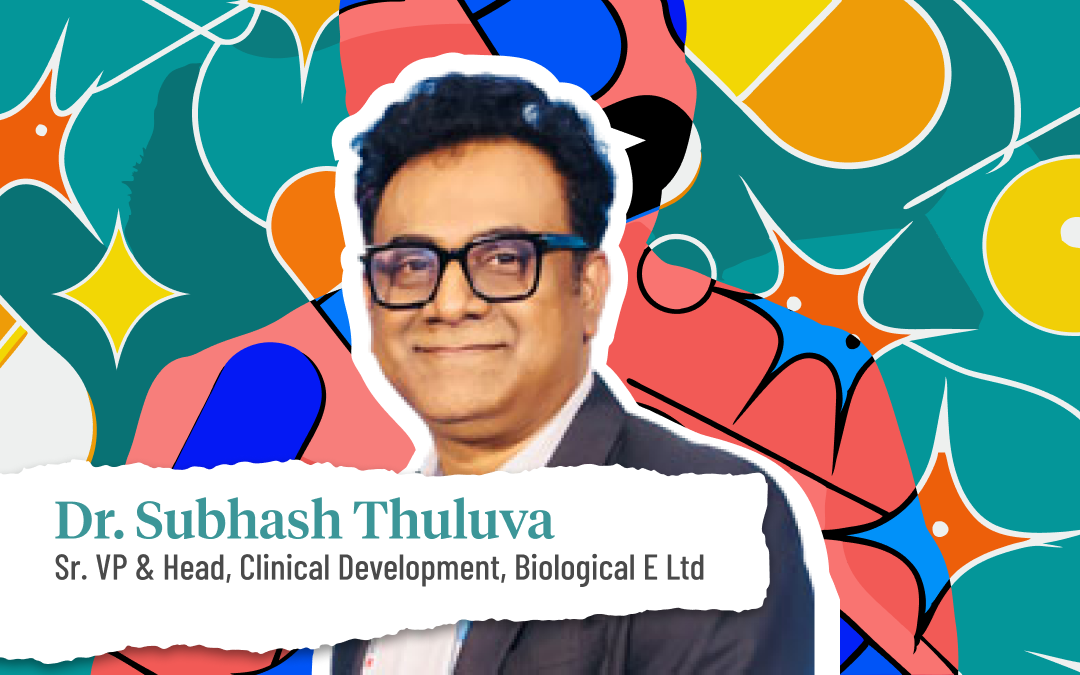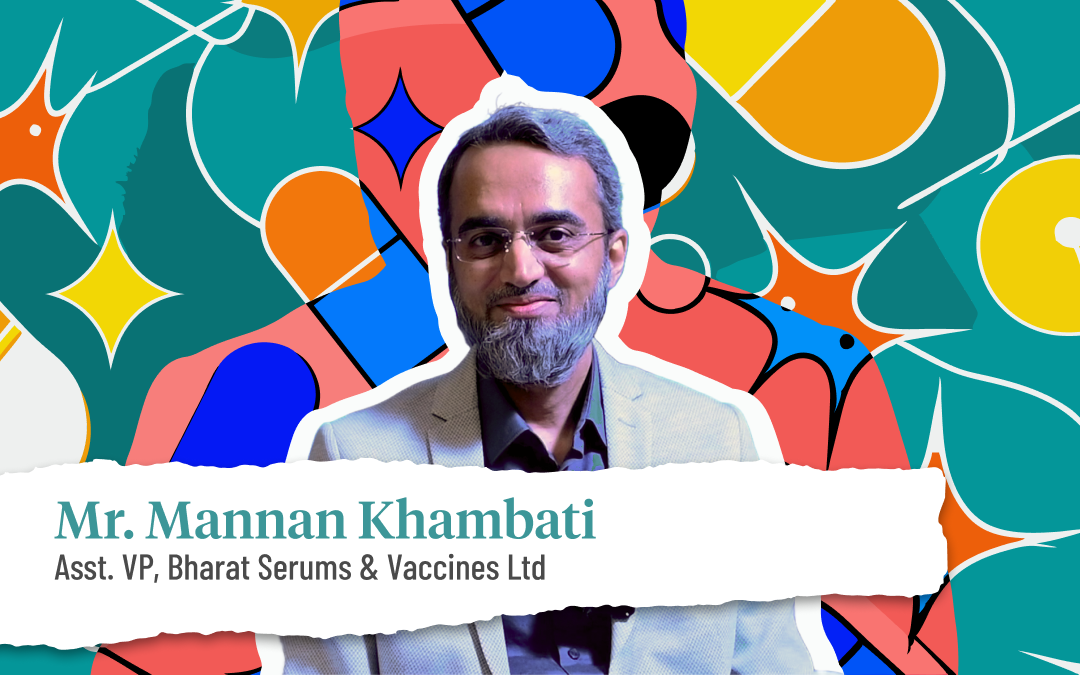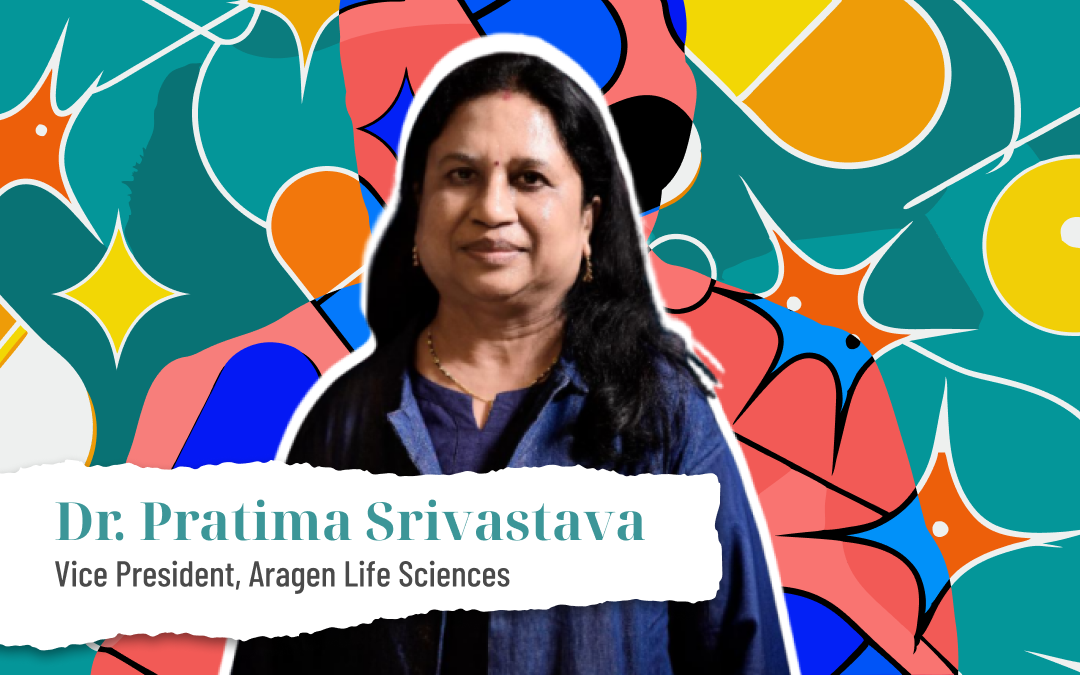QnA
Interview | August 4, 2025
Dr. Shyam Khante, Director at Amarant Lifesciences and former Technical Director at GSK, is a veteran pharmaceutical leader with over 40 years of experience spanning GMP compliance, technical operations, regulatory strategy, and manufacturing excellence. With a postgraduate degree in pharmaceutics and additional credentials in operations research and business management, he has been instrumental in setting up globally compliant facilities and leading regulatory audits across markets including the US, EU, and WHO regions. His expertise spans all major dosage forms, sterile and non-sterile, with a strong focus on quality systems, dossier readiness, technology transfers, and pharmacovigilance. At Amarant, Dr. Khante mentors teams and advises organizations on strategic technical matters, drawing from a career defined by discipline, humility, and a passion for purposeful leadership—values that continue to shape his impact on the industry.
Pharma Now: We have Mr. Shyam Khante. He’s the Director of Amarant Life Sciences and the President of RedLotus PharmTech. Sir, welcome to Pharma Now. Starting off from your academic journey, you were a gold medalist. How do you think academics translate into the industry? What is the correlation between academics and the industry?
Mr. Khante: Thank you. To be frank, I sincerely give a lot of weight to academic excellence. It's not just about the marks or distinctions you achieve, but more importantly, the discipline and ethical values you learn. I believe these form a great inventory of skills you can carry to build your industrial career. For me, good practices learned in academics are extremely important for achieving what you want in the industry.
Pharma Now: Earlier, while having a discussion, I learned you come from a very humble background—from being excited about your first-class train ticket to having your own company aircraft. The whole journey is very inspiring. Can you tell us more about it? How did you start your career in the industry and rise to the heights you have today?
Mr. Khante: I'll tell you very frankly, to rise or work in the industry, you need to have a dream. Unless you have a dream, forget about it—whether you achieve it or not, that's for someone else to decide. But without a dream, you cannot work. I remember very clearly, as a student, we visited Black Suit on May 23, 1973. We had never seen a pharmaceutical company in our lives and were absolutely fascinated by the cleanliness and the number of people. I went home and thought, "God, if you are there, I would like to become the technical director of this kind of big company." That was my aim in life. Believe me, in 1995, I became the technical director of that very company. I thought, "Okay, God was listening." I would ask for something more, but that aim was there, and we started working towards it.
So, I must tell you, if you want to make a career, you must have a well-decided and well-defined aim. You need to work, explore, and continuously refine your skills as required at each stage. But let's not think that any shortcut, manipulation, or malpractice can keep you there permanently. You might stay for some time, but not forever.
Pharma Now: It all starts with a dream, which you convert into goals.
Mr. Khante: Yes, exactly.
Pharma Now: Then Sir, tell us about the first job that you had at Hex.
Mr. Khante: The job I had at Hex, which I truly thank myself and the company for, was like a mother teaching a child. Hex was a company that taught us every basic thing. This is another most important point: unless you know the basics and fundamental basics of a job, you cannot reach where you want.
Today, we talk about cleanliness, air particulate matter, and various environmental controls. But if we don't know how to clean a simple floor, how to deal with dirt, or how to prevent dirt from accumulating in the first place, then what's the point? That's what I learned from my first job. Hex was an excellent training school. They are a fantastic engineering company, and whether in a pharmaceutical or engineering setting, there was complete freedom to work. I owe all my success in my industrial career to where I worked—Hex.
Pharma Now: Sir, Hex taught you that the basics are very important. Tell us more about your journey from Hex in Dombivli, then Aurangabad, and then Hyderabad. We would love to know more about what you learned in each company, how you rose up the hierarchies, and how a young professional entering a career should look at all this.
Mr. Khante: One thing you must understand is that when you work in an industrial career, there are no excuses for anything. I can tell you from my experience at Hex—if today’s generation can believe it—the work used to start at 5:15 a.m. Imagine having to reach a workplace in Mulund from Bombay or from where you used to stay in Dombivli. Imagine the preparation you need to get up at 3:00 a.m. If I tell today’s generation, they will probably faint.
You need to live a very tough life—getting up early, sometimes there's no power, you have to bathe with cold water. Just imagine, there are all kinds of difficulties, but you cannot give excuses. You have to travel: catch a train, come to the station, take a taxi, come to work, and start the line. If you don’t start by 6:30 a.m., when the other operators come, the line will be idle. That would be reported: “The line did not start in time.” Believe me, it was a hellish thing. You might be thrown out of the job. You may say it was because of fear, but that taught us the first important thing: arriving on time, with determination. Let it not happen by fluke; it has to happen by design and conviction. In my life, I have always arrived on time, and that is what Hex taught me.
The second important thing is the place of work. You must understand that wherever you work, you are not a person that someone will come to. You have to go out and find things out. At Hex, I experienced a very good work culture. Even the workmen had a good work culture, and that’s another thing I learned.
Third, the freedom to work allowed us to practice many new things. We did that, and that’s why in my industrial life I could do many new things, thanks to my first job.
Pharma Now: So, instead of focusing on all the fancy things, you are telling us to focus on the basics. Get those right. Reach there on time.
Mr. Khante: Simple things like being punctual and grounded. You’re going to a pharmaceutical company for work, not a film industry for a screen test. You must take a bath and go. There is no use checking contamination afterward if a dirty fellow goes there. That’s what we often do: we just keep putting filter after filter but never check the source. Hex would throw you out if you’re not properly dressed. That is a simple thing.
Pharma Now: So, getting the basics right, a strong foundation, can make you go places. Sir, tell us the story of the managing director's room and how you got back into the same group.
Mr. Khante: It was a very interesting story. When I went to Barros as a technical manager, I always saw a room locked—it was the MD’s room. Only certain persons could come in. The secretary would say no to me, stating only the MD and that level of person could enter. I said, “Fine, let me work for that.” I decided and subsequently changed jobs, did different jobs. When I worked for a company which merged with Glaxo, I became the technical director of Glaxo SmithKline. Part of my responsibility was that plant, and then the door was open for me. I realized, “This is okay.” That was the day I was dreaming to sit there, and now the room is open. Let me go and sit. Again, it’s determination. Don't think it is sheer coincidence. It’s determination and hard work which takes you there. It’s tough, but yes, it’s possible.
Unless we have a dream, nothing will happen. If you start life by thinking “Okay, I have to do something somehow,” you will just keep doing something, but never the thing that is really required.
I had a team of people reporting to me; several IMs (Industrial Managers) reported to me, but I was neither IIM nor higher. They always used to ask, “My boss is sitting in Singapore and he is an IIT graduate—how is this happening?” I said, “You tell me, because now you put me over here.” He said, “Fine, you’ve told me one common thing most uncommonly found in them, and that is you have common sense in what you require. That is nothing but common sense.” If you have common sense and judgment—these are five important things.
You have to have judgment unless you know how to judge. Like a cricketer who makes changes depending on bowlers and batsmen—he knows the fielding arrangements according to talents and the state of play. That’s judgment.
The second important thing is a sense of urgency. In an organization, priorities keep changing—yearly, monthly, weekly, daily, hourly. You can’t be rigid thinking, “Because I decided to do this, I will do it no matter what.” That won’t work.
The third important thing I always want is energy level. Believe me, in my entire career, except for one major accident in Aurangabad, where I was hospitalized with a near-fatal accident, and once I had typhoid in my early stages—I never took even half a day off. Don’t believe it? Not even an hour early leave for health reasons. That shows true urgency and response. I never reached late, never gave excuses. I am termed antisocial in my family because I never attend family weddings or parties. I made a mistake ignoring family sometimes, but I concentrated on work. That is a sense of urgency.
The fourth important thing is to care for people. You must understand that your people work for you; you don’t do everything yourself. I’m often asked by my wife, “What work do you do?” I say, “I don’t do any work; I get paid for getting work done.” You must care for people.
Lastly, a sense of humour. You cannot work with a long face. I’m tremendously witty and cannot stay without cracking jokes. I’m now a professor in a pharmacy college and convert dry knowledge into human understanding in a palatable form. I always say if it’s a bitter drug, nobody will care. But if you convert it into a sweetener form, people will accept it. You must make your job interesting and fun, or you won't succeed. A sense of humour is critical.
Pharma Now: Like a drug delivery system delivers knowledge, you must deliver it with humour. Sir, you had a great mentor in Hyderabad called Dr. Gupta. Tell us more about mentorship, how one should approach it, and how one should choose their mentor?
Mr. Khante: We always say “Guru Sakshat Param Brahma, Tasmai Shri Gurave Namah.” The Guru-shishya (teacher-student) relationship makes a big difference in life. In my industrial life, I’ve had many gurus, from my first boss Mr. Pradhan to our technical director Dr. Rusha, HR director George, Dr. Gupta, Mr. Deendar Pal, and finally, my boss, Mr. Rantidev. They did fantastic mentoring. They were like a carrot and stick—firm on results but available for guidance. They would push me when I was lacking skills and provide advice and encouragement when needed at the right time. Encouragement during the process is more important than after success. When you are playing, timely advice is more helpful than cheering at the end. I owe my life and success to them. They always told me where I went wrong and helped me get back on track. I could do many firsts in the industry because of their support. They said, “Do whatever, fail, I will see.”
I had the privilege of spending 20 minutes one-on-one with Dr. APJ Abdul Kalam—my greatest moment. He treated me like a friend, spoke to me humbly, and encouraged me. My meeting with him was absolutely fantastic. He is truly a God, and meeting him was like meeting a God. I also met Mr. Deepak Parekh, Chairman, when I was on Hex’s management committee. Meeting such people makes you feel great. When you talk softly, with humor and care, people listen. Don’t be a harsh ringmaster.
Pharma Now: Mentors should encourage during the process, not just at the end.
Mr. Khante: Encouragement is very important. Like when a child is learning to walk, mentors watch, let them fall occasionally, but intervene to protect. My mentors seem like gods to me. None were related to me, or from my college, community, or state—only commonality was profession. This is why I have never practiced nepotism or partiality, always valuing merit.
Pharma Now: Mentorship and leadership go hand in hand. Leadership is the reward of being mentored. So, how do you define leadership? How should someone lead teams?
Mr. Khante: Leadership is demonstrating and encouraging. There are four kinds of leaders:
I watch and inspire. I ask questions but never give direct answers. I tell students to find answers in books—I give them books but never tell the exact page or answer. They find answers themselves and come prepared. That is encouragement, which I believe is leadership. If you encourage people, they give wonderful results. Don’t spoon-feed or overdo. Tell them whatever you know, good or bad, right or wrong. I tell my son not to learn computer skills from seniors but go to the right class and learn properly. No shortcuts. Even for shortcuts, there are no shortcuts. If someone feels that there are shortcuts, he/she might be very lucky.
Pharma Now: So Sir, you don’t give your students the answers. But you have answered our questions so well. Thank you for the answers. Sir, you were the neighbor of the CM, how was that for you coming from a humble background?
Mr. Khante: I advise not to glorify your past. Many say, “I came from humble backgrounds.” That was yesterday and is done. Your humble background is an inventory of values, not a certificate of your future. My mother used to wake at 4 a.m. to cook. I never held arrogance despite now affording servants. So don’t glorify your past excessively. Be humble. Adjust yourself to situations. Don’t let pride take over. Align your skills with the present.
Pharma Now: Sir, you value common sense and presence of mind. In a person’s lifespan or journey, you believe these two are of utmost importance. Please elaborate more on that.
Mr. Khante: Dream with clarity about what you want to achieve. NASA’s dream was not just to send a man to the moon, but to bring him back safely. Hundreds are willing to die, but the goal was a safe return. Similarly, think ethically, act ethically. Many people earn illicit money but lack respect. I get many people wanting to greet me, but I am grateful I never took any favors. Gratitude builds long-lasting success.
Pharma Now: At some point, people must hand over to the next generation. You must give it back to society. What are your thoughts?
Mr. Khante: There is always a time for retirement. In cricket, players may be at their peak, but when older, they must step aside for younger players to grow. I planted 11,000 trees on barren land near my house, tending them every weekend with help from colleagues, including the Finance Director of a pharmaceutical company and a very senior Navy official. There’s a job for every age. You must know when to stop and let others grow. Otherwise, working beyond your time defeats your career.
Pharma Now: Sir, in your long journey, how have you seen Indian pharma evolve during your career?
Mr. Khante: Since 1991, there has been a paradigm shift in the pharmaceutical industry. Earlier, Indian pharma was less visible internationally. After 1991, with liberalization, there were many US FDA clubs and missions. By 2004, India attracted international investors. Many companies adopted the “Make in India” culture. Export orders are full up to 5 years ahead. Some Indian plants have a quality better than in the US. Though occasional negative issues arise, India has a great pharmaceutical future. The only thing is the industry must adopt new technologies—Artificial Intelligence, robotics, diagnostics, and very importantly, implantable devices. These are the areas India should strengthen.
Pharma Now: So, Sir, you think these are the gaps or shortcomings you see?
Mr. Khante: These are not gaps. These are something that we are working for in the future. We must know what’s coming and start working now. Without working, you won’t see tomorrow.
Pharma Now: Do you believe India has already become the “pharmacy of the world” or is there more to achieve?
Mr. Khante: I think we have achieved much, but achievement is a journey, not a final goal. You have to continuously do things. If you stop, you lose ground. It’s like an aircraft: it must fly at speed (about 800 km/h) or it will fall. Same with the industry—we must maintain speed, quality, readiness, and adoption of technology.

FT - Dr. Subhash Thuluva

FT - Ms. Rajni Jha

FT - Mr. Mannan Khambati

FT - Dr. Pratima Srivastava

FT - Dr. Subhash Thuluva
Dr. Subhash Thuluva, Senior VP at Biological E, shares his 25-year journey in clinical development, ...

FT - Ms. Rajni Jha
Ms. Rajni Jha, a seasoned pharmaceutical specialist, shares her journey from the lab to becoming a l...

FT - Mr. Mannan Khambati
Mr. Mannan Khambati, AVP of Biotech Manufacturing at Bharat Serums and Vaccines, shares his inspirin...

FT - Dr. Pratima Srivastava
Dr. Pratima Srivastava, Vice President at Aragen, shares her remarkable journey from aspiring scient...